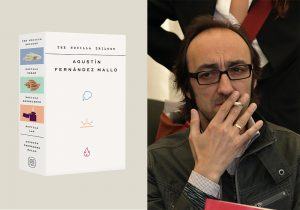Thomas Bunstead at The Paris Review:
 In June 2007, in Seville, Spain, a conference was held under the banner “New Fictioneers: The Spanish Literary Atlas.” Around forty writers and critics came together at the Andalusian Center for Contemporary Art to discuss the conservatism they felt to be suffocating their national literature. United in their belief that the Spanish novel in particular was in a bad state, they pointed to a disregard for the increasing centrality of digital media in people’s lives and a knee-jerk resistance to anything that smacked of formal experimentation. They were mostly of a similar age, born in the twilight of the Franco regime, committed to the DIY punk ethos of the fledgling blogosphere, and more likely to claim lineage to J. G. Ballard or Jean Baudrillard than any garlanded compatriots of their own. Nonetheless, the only true point of agreement on the day was that they were not part of a unified movement. The conference’s inaugural address itself rejected any suggestion of a coherent generation—a commonplace criticism familiar in Spain ever since the clumping together, at the end of the nineteenth century, of the Generation of ’98. Within a few weeks, however, an article appeared dubbing these writers “The Nocilla Generation”: the most significant literary phenomenon of Spain’s democratic era now had a label, and it stuck.
In June 2007, in Seville, Spain, a conference was held under the banner “New Fictioneers: The Spanish Literary Atlas.” Around forty writers and critics came together at the Andalusian Center for Contemporary Art to discuss the conservatism they felt to be suffocating their national literature. United in their belief that the Spanish novel in particular was in a bad state, they pointed to a disregard for the increasing centrality of digital media in people’s lives and a knee-jerk resistance to anything that smacked of formal experimentation. They were mostly of a similar age, born in the twilight of the Franco regime, committed to the DIY punk ethos of the fledgling blogosphere, and more likely to claim lineage to J. G. Ballard or Jean Baudrillard than any garlanded compatriots of their own. Nonetheless, the only true point of agreement on the day was that they were not part of a unified movement. The conference’s inaugural address itself rejected any suggestion of a coherent generation—a commonplace criticism familiar in Spain ever since the clumping together, at the end of the nineteenth century, of the Generation of ’98. Within a few weeks, however, an article appeared dubbing these writers “The Nocilla Generation”: the most significant literary phenomenon of Spain’s democratic era now had a label, and it stuck.
more here.
